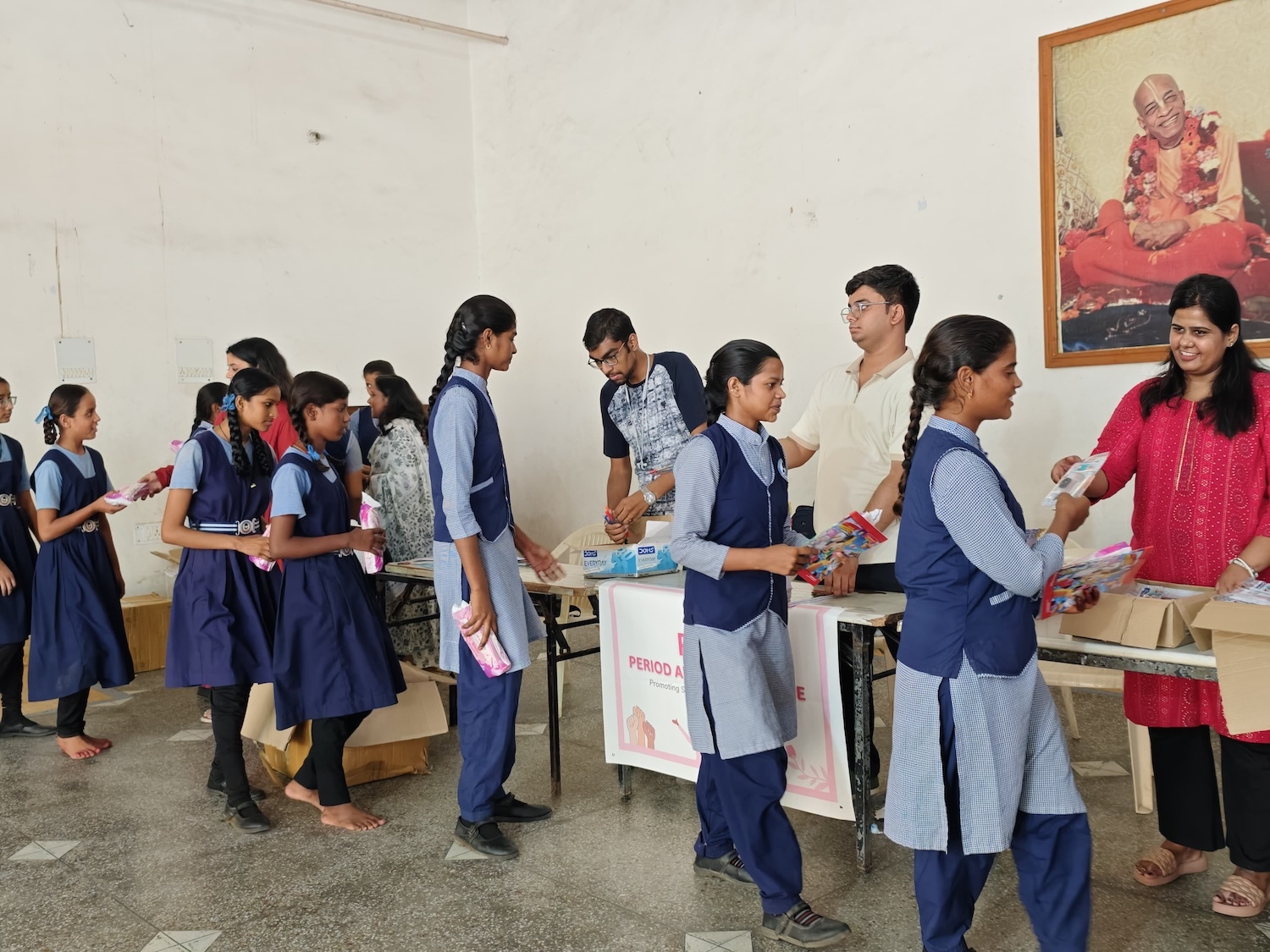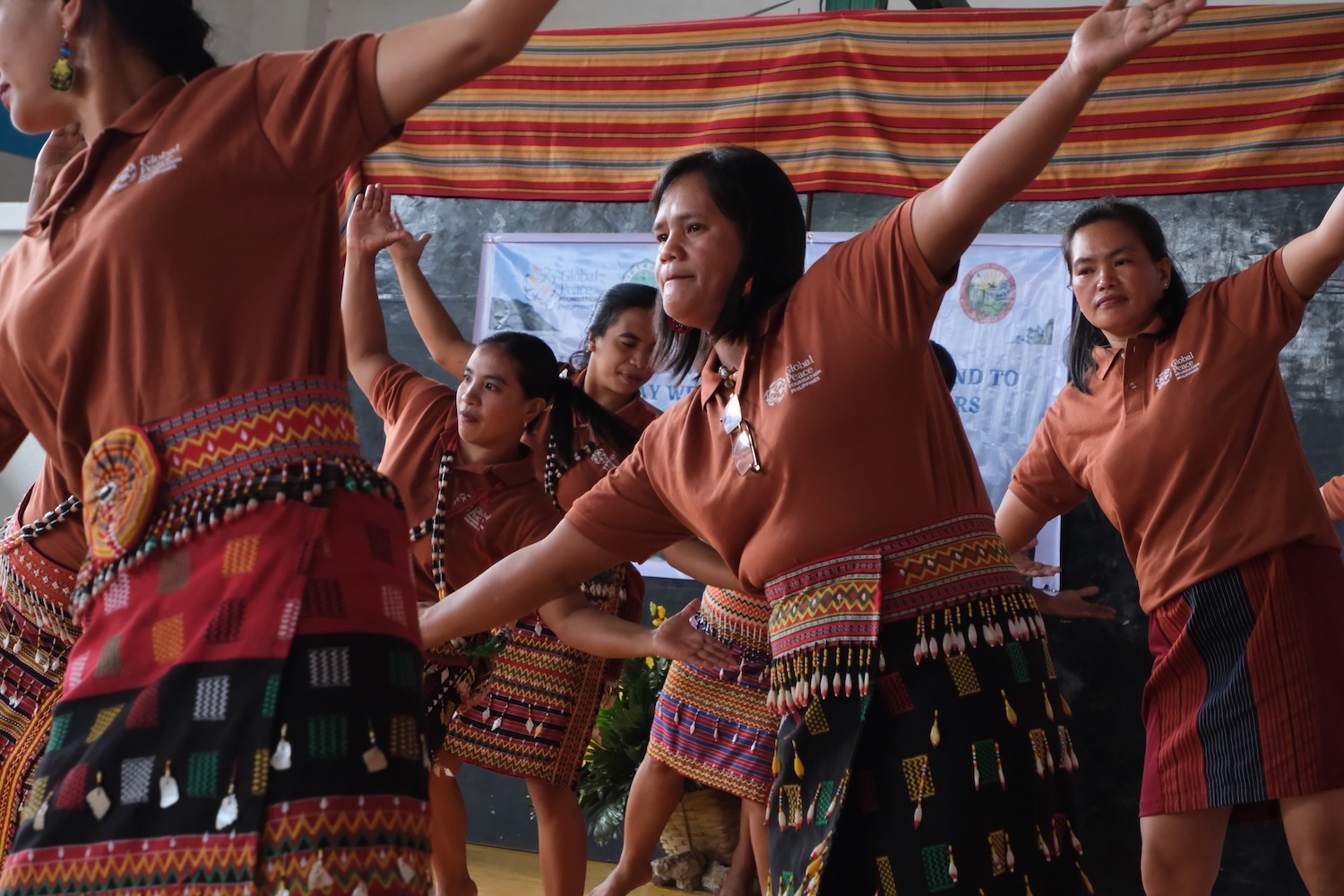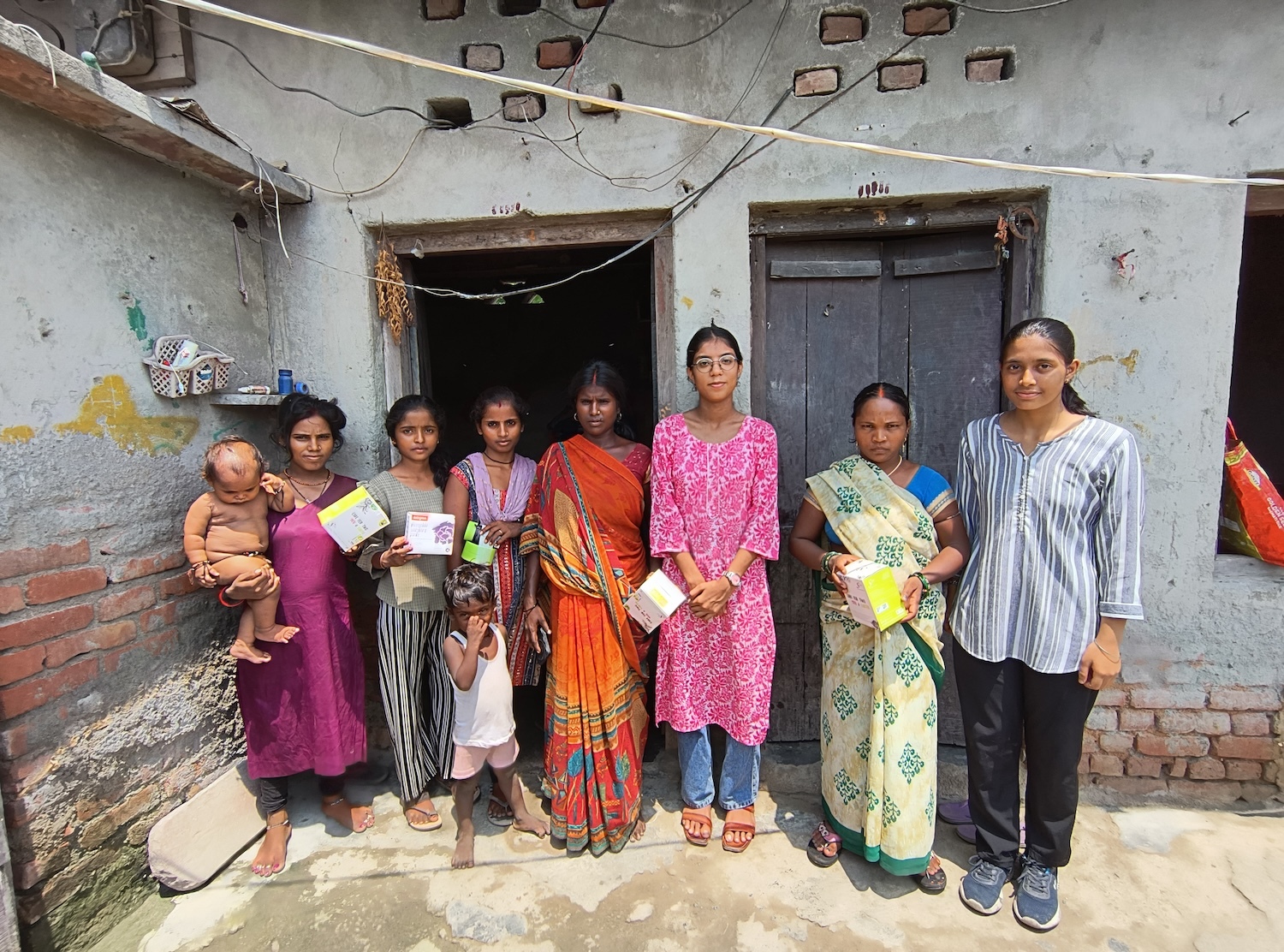In representation of the Ecosystem for Social Transformation, the Esquipulas Foundation has signed a historic Cooperation Agreement with the Rigoberta Menchú Tum Foundation within the Framework of Regional Development and Peace.
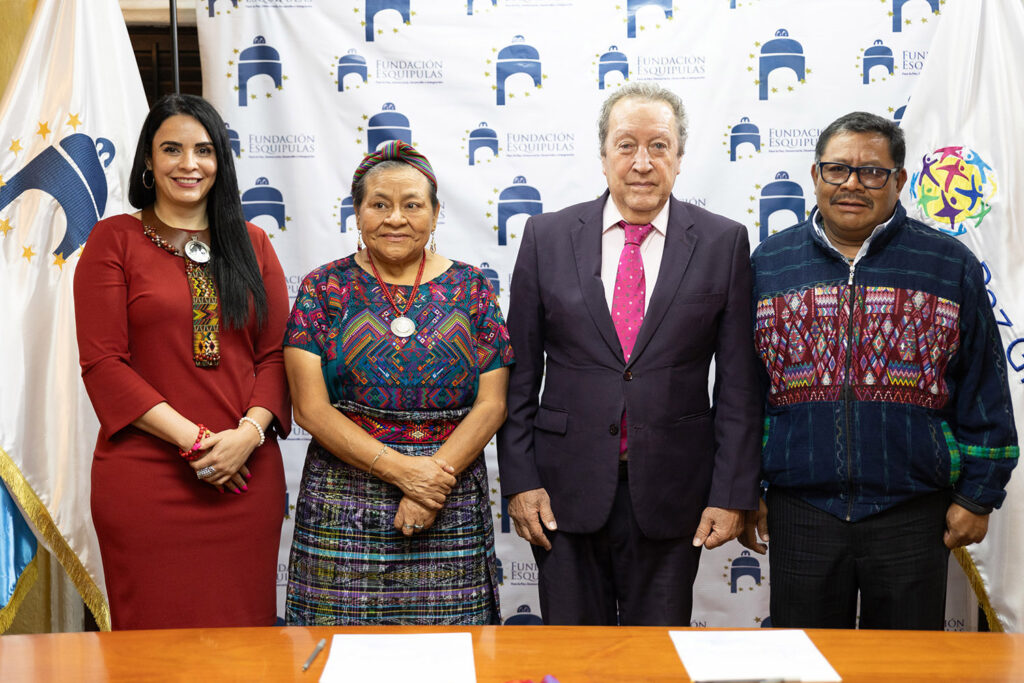
From Left to Right. Olinda Salguero, President of the Esquipulas Foundation and Representative of Global Peace Foundation for Central America; Rigoberta Menchú, Nobel Peace Prize winner in 1992; Vinicio Cerezo, President of Guatemala from 1986 to 1991; and Angel Francisco Canil Grave, Representative of the Rigoberta Menchú Tum Foundation, were present.
A groundbreaking Cooperation Agreement has been signed by the Esquipulas Foundation and the Ecosystem for Social Transformation, which includes the Global Peace Foundation Central America, FUNDAECO, and the Latin American Presidential Mission.
Nobel Peace Prize laureate Rigoberta Menchú and former Guatemalan President Vinicio Cerezo were present as honorary witnesses, highlighting their support for this significant initiative.
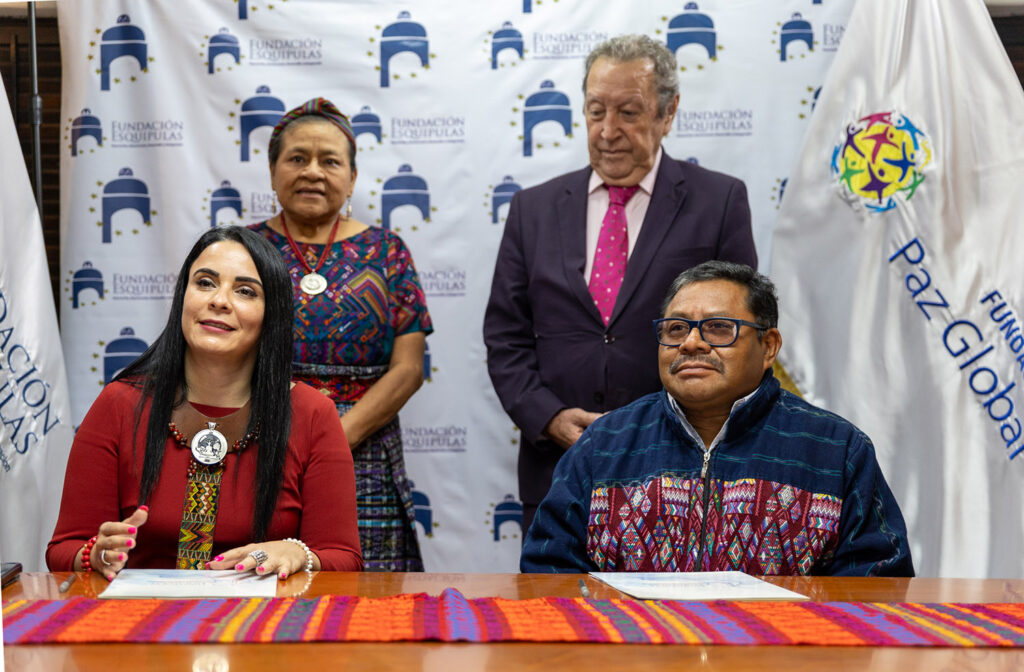
Olinda Salguero, President of the Esquipulas Foundation and Representative of Global Peace Foundation for Central America, and Ángel Francisco Canil Grave, Vice-President of the Rigoberta Menchú Tum Foundation, played pivotal roles in facilitating this agreement. It aims to promote democracy, social development, and governance throughout Central America, focusing on educational initiatives and civic engagement, particularly targeting youth and women.
Building the Central American Dream
This cooperation is set to strengthen inter-foundation collaboration, enabling more effective regional integration and fostering economic, political, and social advancements. The commitment of these organizations to work together underscores a unified approach to addressing Central America’s challenges, aiming for sustainable development and enhanced community involvement.
This agreement aims to strengthen collaboration in key areas such as democracy, regional integration, social development, and governance. It seeks to create spaces for analysis and debate, engaging the community to improve strategies for coexistence.
This agreement is founded on shared values and the joint vision of both organizations to promote peace and democracy in the Central American region. “We did not just unite our ideas but our purposes; we came to an agreement and decided,” noted Salguero, quoting the Popol Vuh, to underline the unity and commitment behind this pact.
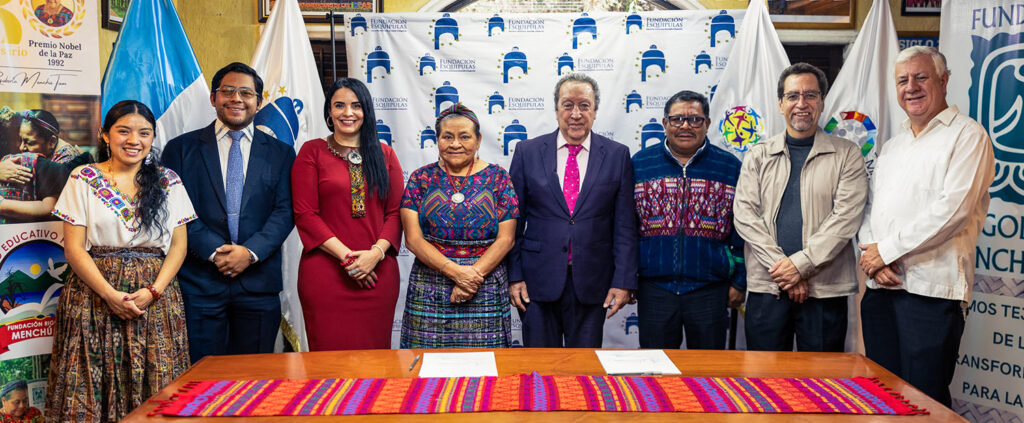
Photo from left to right: Chahim Saquil, Cooperation Manager at the Rigoberta Menchú Foundation; Mash Canil Menchú, Director of the Rigoberta Menchú Tum Foundation; Olinda Salguero, Representative of the Global Peace Foundation Central America; Rigoberta Menchú, Nobel Peace Prize laureate; Vinicio Cerezo, President of Guatemala from 1986 to 1991; Francisco Canil, Representative of the Rigoberta Menchú Tum Foundation; Marco Cerezo, Director of Fundaeco; Julio Aldana, Member of the Board of Directors at the Esquipulas Foundation.
Inter-foundational agreements are crucial for strengthening Central American integration and peace, essential elements for Guatemala’s sustainable development. By fostering collaboration between these foundations operating in the region, the partnership will facilitate joint projects, collaborative research, and academic exchanges, optimizing available resources and knowledge. These synergies drive innovation and economic development within Guatemala and promote greater social and political cohesion among Central American countries. Through political debates, internships, and coordinated academic activities, we aim to improve the understanding of common challenges and explore integrated solutions that benefit the entire region, laying the groundwork for lasting peace and shared prosperity.
At the Service of Others
The alliance foresees the implementation of cooperation programs and projects, including internships, academic activities, and political debate forums. It also focuses on coordinating efforts to promote analysis and dialogue on national and international issues to strengthen strategies for dignified coexistence and inclusive development.
Key points of the agreement include consolidating peace and strengthening democracy through the promotion of regional integration. The parties commit to creating spaces for political debate and analysis on critical topics such as development and governance, actively seeking community involvement to improve coexistence strategies. Additionally, they will implement educational programs in democracy, leadership, and civic participation, with a special focus on youth and women, to foster a more informed and participatory society.
To ensure the effectiveness and impact of these initiatives, specific agreements will be established for each project, guaranteeing detailed and organized planning and execution. This systematic and coordinated approach not only facilitates achieving agreed-upon goals but also enhances the capacity of both organizations to generate significant and sustainable changes in Central American society.
Protecting Nature Together
The Ecosystem Agreement also aims to enhance eco-development initiatives. Fundaeco, in collaboration with the Rigoberta Menchú Foundation, has launched a crucial initiative for conserving Cerro Amay in Quiché, an area of significant ecological and cultural importance.
This cooperation focuses on implementing conservation projects that aim to protect the region’s rich biodiversity and promote sustainable practices among the local communities, many of which are indigenous and depend on these natural resources. Through this partnership, both organizations are committed to strengthening environmental conservation while fostering the economic and social development of the communities in the area, respecting their heritage and traditions.
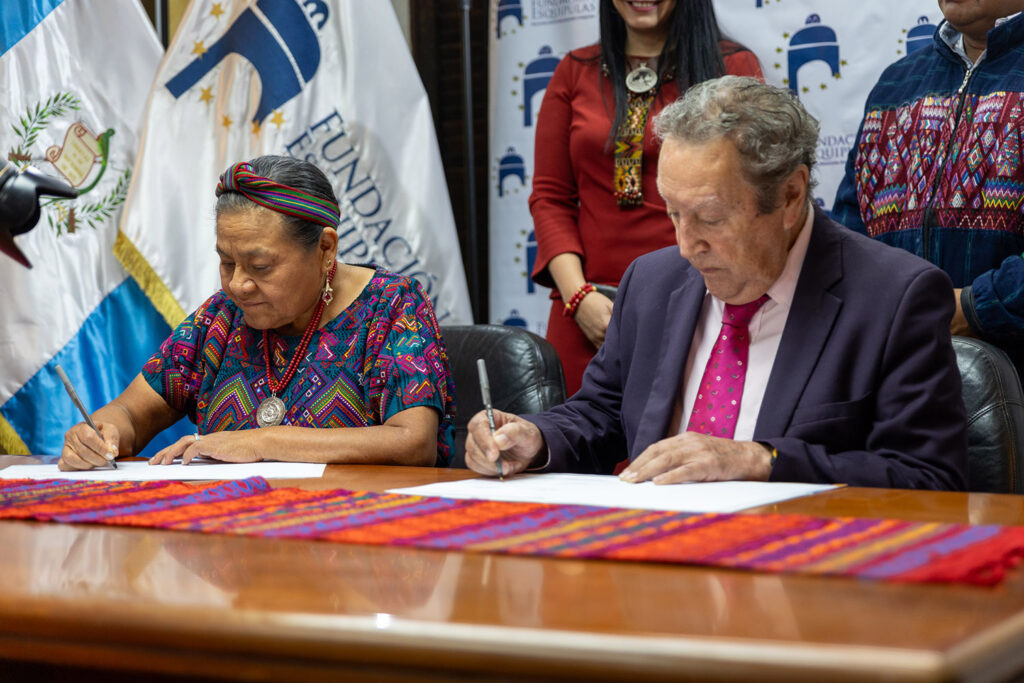
Rigoberta Menchú, Nobel Peace Prize winner in 1992; Vinicio Cerezo, President of Guatemala from 1986 to 1991 – over three decades of continuous work for Peace in Central America
A Life at the Service of peace, Democracy, and Development
Both Dr. Rigoberta Menchú Tum and former President Vinicio Cerezo are emblematic figures in the struggle for peace and development in Central America. Rigoberta Menchú, winner of the Nobel Peace Prize in 1992, has been a tireless advocate for indigenous rights and social justice in Guatemala. Her activism began in the 1970s amidst repression and armed conflict, and since then, she has worked tirelessly to promote reconciliation and respect for indigenous cultures throughout the region. On the other hand, Vinicio Cerezo, who served as President of Guatemala from 1986 to 1991, played a crucial role in promoting democracy and regional peace after decades of dictatorships and civil wars. His leadership was instrumental in the signing of the Esquipulas agreements, which aimed to establish a framework for peace and political cooperation among Central American countries. Additionally, Cerezo was recently recognized by the Global Peace Foundation with a Global Peace Legacy Award for a lifetime service in favor of peace.
Together, Menchú and Cerezo have shared over three decades of commitment to the dream of a peaceful Central America, working from both political platforms and grassroots initiatives to foster dialogue and lasting peace in the region.
The signing of this agreement not only symbolizes a strategic alliance but also a step forward toward a stronger and more united Central America, emphasizing the vital role of integration as a tool for sustainable development and lasting peace in the region.

